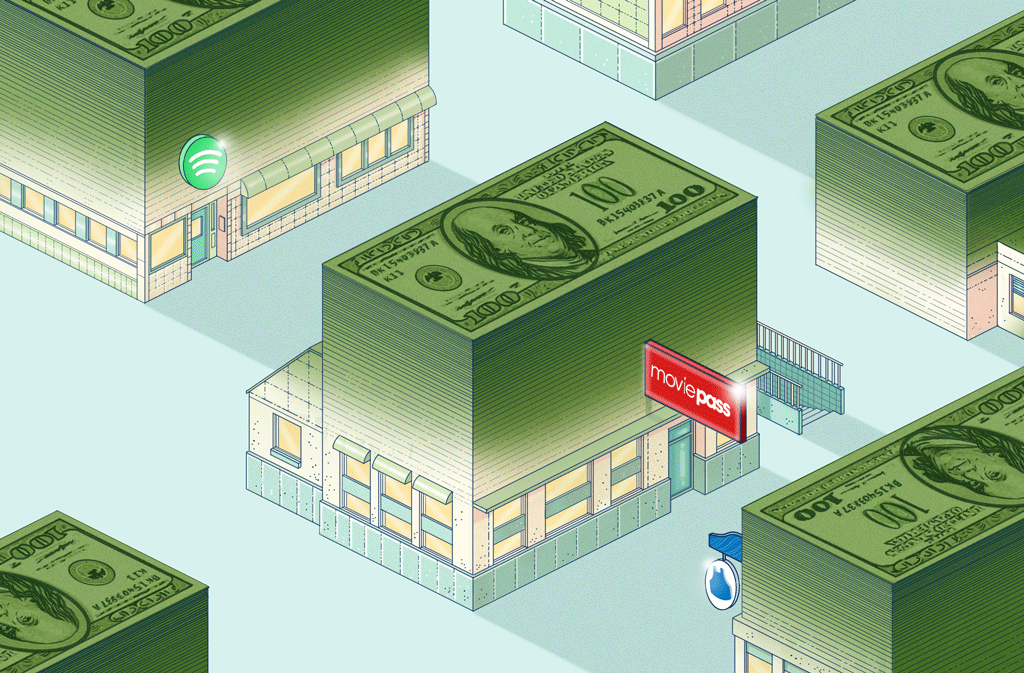This is a slightly edited version of my answer to the following question on Quora:
How is it that Amazon doesn’t make a profit, yet Jeff Bezos’ net worth is in the billions?
The question is temporally flawed since Amazon does make profits today. But there was a time when Amazon made losses and still Jeff Bezos had a networth in the billions – or at least hundreds of millions.
Then there are so many companies that make losses now but their founders are worth billions e.g.
- The two Co-Founders of Flipkart pocketed a cool billion dollars each when their startup was acquired by Walmart for $22 billion in 2018. Flipkart had never made a profit during its entire lifetime as an independent company.
- AirBnB / Brian Chesky. AirBnB never turned an annual profit since its 2008 launch (Source: shrts.in/a9rF)
So there’s nothing structurally flawed with the question. In fact, it highlights a paradox that intrigues – even annoys and angers – a lot of people.
To resolve this apparent paradox, you need to grasp a disruptive change that has happened to the nature of business over the last 10-12 years.
Back in the day, a founder started a business, the business made profits, the founder took home the profits, that created networth. So, in that era, if a founder was rich, it automatically meant the company made profits. Per contra, if a company made losses, its founder couldn’t be rich.
Those days are gone.
As New York Times observed in The Entire Economy Is MoviePass Now. Enjoy It While You Can. (Published 2018), profit is so 20th century.
Nowadays, companies may make losses but their founders can be rich. This is especially true of new-age VC-funded companies.
Their wealth is explained by the modern trend in which many loss-making startups enjoy valuations in billions.
- Unicorn: $1 billion or more e.g. Ola
- Decacorn: $10 billion or more e.g. Uber
- Centicorn: $100 billion or more e.g. ByteDance
Frothy valuation is in turn explained by the so-called Greater Fool Theory described in my blog post entitled Teardown Of The VC Investment Model.
As a result of the Unicorn, Decacorn or Centicorn status of their companies, their founders, who have substantial shareholding in these companies, are worth billions.
As I highlighted in The Six Secrets To Attract Venture Capital:
The VC Investment Model has created a new paradigm in which wealth can be generated without profits. Gone are the days when a company had to make profits for its stakeholders to become rich. Today, promoters and investors of many VC funded companies have become billionaires even though their companies have never made profits e.g. Flipkart, PayTM, Uber.Lest you think that this kind of bounty happens very rarely, over 70% of tech companies that IPOd last year in the USA made losses and almost all of them created billions in networth for their Founders (and rewarded their VCs with multibagger returns).
Dropbox, Spotify, Snap, SurveyMonkey, Tesla … these are not the only startup-turned-public companies that enjoy skyhigh valuations despite making whopping losses. 83% of IPOs in 2018 were for loss-making companies. https://t.co/FWAE9InArz
— Ketharaman Swaminathan (@s_ketharaman) March 5, 2019
You may be right in thinking this is a bubble.
But bubbles don’t burst overnight. That’s a point missed by many people.
Biggest bubble in the market IMO but I would've said that many 100s of % ago. Can't remember who sent me this graphic but I love it… pic.twitter.com/FizXMgqpGe
— chips (@chipsndip_to) November 26, 2020
(If you’re not able to view the above tweet, see screenshot at the end of the post.)
Before reaching steady state – and bursting – bubbles go through a transient phase, when they grow and lot of people make a lot of money. Quite often, the transient phase can last years if not a decade. For example, the subprime mortgage bubble began in the early 2000s and lasted four to five years before it burst and caused the Great Financial Crisis in 2007-8.
While all bubbles burst at steady state, they end badly only for the people who’re caught holding the parcel when the music stops at the end. For many others who make money by passing the parcel around while the music kept playing for years, bubbles prove to be lucrative.
That’s why, even though so many bubbles have burst in the past, that has never stopped new bubbles from forming in the future.
Pundits have been predicting that the startup valuation bubble will burst next year for the last 10 years. But it hasn’t burst yet. If anything, it has only grown.
The days of startups making profits by Series E / F are long gone. This was driven home once again when 6 unicorns that filed for IPO on the same day recently are all loss making. #Snowflake #Asana #SumoLogic #UnitySoftware #Amwell #JFrog . https://t.co/BNPIBjFQyp
— Ketharaman Swaminathan (@s_ketharaman) September 8, 2020
The startup valuation bubble may burst tomorrow or it may last forever. No one knows.
But the point is, frothy valuations of loss-making startups is not a flash in the pan.
Sometimes I wonder if it’s the future of business!
While you’re here, you might also want to check out my answer on a related subject Ketharaman Swaminathan’s answer to Why are startups such as OYO, Uber firing so many employees during Corona Pandemic although they have a valuation in billions? Where has the money gone now? Were they not able to sustain even for 2 months? .
Quora Reference: https://qr.ae/pNUDA5.
UPDATE DATED 11 APRIL 2022:
Two years later, nobody calls Tesla a bubble anymore. When I pointed this out to the OP of the above tweet, he blocked me. As a result, you may not have been able to view the tweet. If so, given below is the screenshot.



